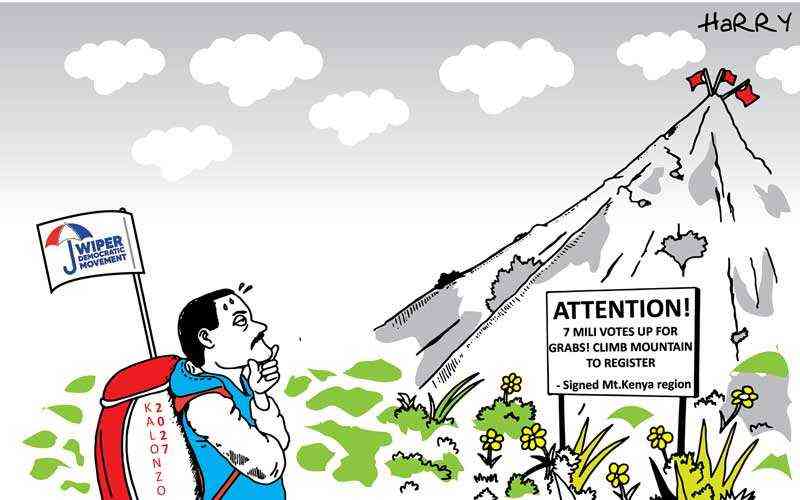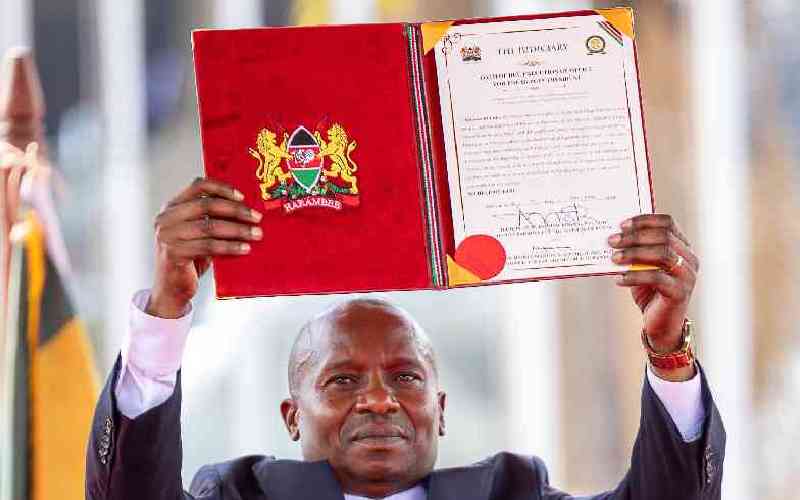
The impeachment of Deputy President Rigathi Gachagua has exposed him as a helpless commander with unreliable human and social capital to counter the decisions of Parliament. His stance as a truthful man has been rendered null and void at a time when Kenyans need to know the truth about the questionable and dubious deals in critical sectors such as health. Further, his quest to become the Mt Kenya kingpin has been nipped in the bud, albeit for now.
Mr Gachagua can, however, draw some inspiration from renowned author Niccolo Machiavelli who faced similar or even worse predicament after 15 years of official practical life. The dismissal of Machiavelli gave him a lifeline in authorship where his Bantam classic edition, The Prince, has continued to shape leadership and politics the world over more than five centuries later.
According to a brief introduction in his book, Machiavelli was born in 1469 in the metropolitan city of Florence in Italy. In 1498, he was appointed to the Chancellery of the Florentine Republic to serve as an administrator and a diplomat. Through travel to France and Germany, he gained deep insights about political leaders. Italy, presumably through its leader Cesare Borgia, gave him an entry point into writing The Prince.
After his dismissal and banishment, Machiavelli was accused of complicity, imprisoned and tortured. Although later exonerated, he was without a position and retired to farm near Casciano. While there, mingling with the local peasantry, he wrote The Prince and The Discourses in an effort to prove that banishment neither made him ineffective nor idle. This comeback resonates with the adage, 'The potential that lies in human beings is best manifested during crisis'. Social and political condemnations have the potential to make individuals re-look and reshape their approach which can eventually change their destiny forever. While some people write to earn a living, others write to help others live better through inspirational, philosophical, poetic and biographical works. Writers have in many ways changed the course of living and finding meaning in the very living.
The Prince was an avenue for Machiavelli to set down a treatise on leadership that is practical, not idealistic. The Sixteenth-century masterpiece is today an essential reading for every student of government and leadership. To contextually put the works of Machiavelli into the current political quagmire facing Gachagua, the time is ripe for him to rewrite his own political and social course. A graduate in Political Science and Literature with vast experience in public administration, he is now well-placed to audit himself and write how deputy presidents can manoeuvre the political tide without humiliation and banishment. Kenya’s history is replete with deputy presidents who faced uncertainty, with the political careers of some ending while they were on the cusp of ascending to the presidency. After all, writing is more influential than politics and can traverse borders, is timeless and tribeless as The Prince has proved to be.
The challenges of life make us need a temporal or even permanent escape for our senses and souls. Renowned African writers such as Chinua Achebe, Wole Soyinka and Ngugi wa Thiong’o, among others, have perhaps been more significant in our lives than the politicians we so admire. Humans struggle to find their true meaning in life only to learn, albeit late, that true meaning is hidden in things we truly despise. Gachagua should therefore not be delusional to believe the sympathy displayed by the masses and politicians alike for nothing is more useless and inconsistent than the multitude. In the record of human actions, we often find instances of a man being bitterly condemned to death by the multitude and then being bitterly mourned and wished alive again by the same multitude.
Mr Ndichu is a marketing communication specialist. E-Mail; [email protected]
 The Standard Group Plc is a
multi-media organization with investments in media platforms spanning newspaper
print operations, television, radio broadcasting, digital and online services. The
Standard Group is recognized as a leading multi-media house in Kenya with a key
influence in matters of national and international interest.
The Standard Group Plc is a
multi-media organization with investments in media platforms spanning newspaper
print operations, television, radio broadcasting, digital and online services. The
Standard Group is recognized as a leading multi-media house in Kenya with a key
influence in matters of national and international interest.
 The Standard Group Plc is a
multi-media organization with investments in media platforms spanning newspaper
print operations, television, radio broadcasting, digital and online services. The
Standard Group is recognized as a leading multi-media house in Kenya with a key
influence in matters of national and international interest.
The Standard Group Plc is a
multi-media organization with investments in media platforms spanning newspaper
print operations, television, radio broadcasting, digital and online services. The
Standard Group is recognized as a leading multi-media house in Kenya with a key
influence in matters of national and international interest.









